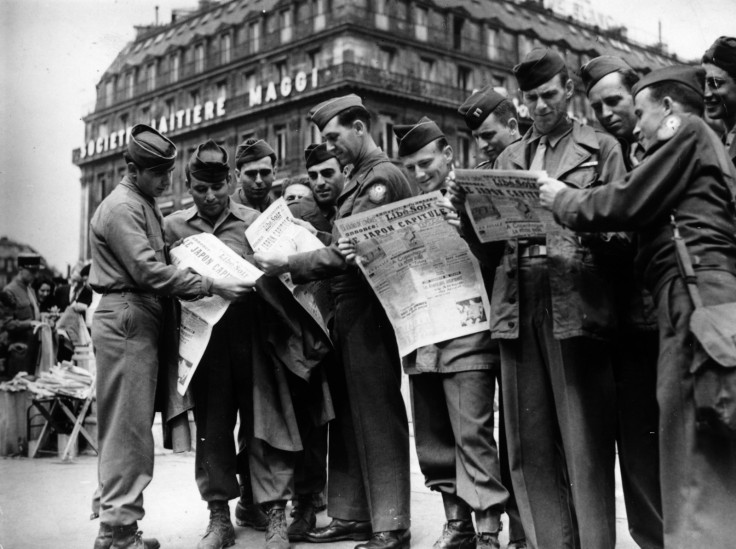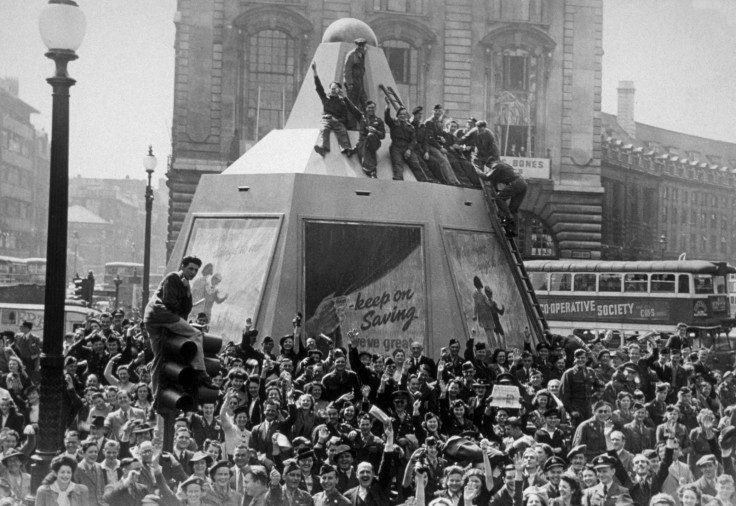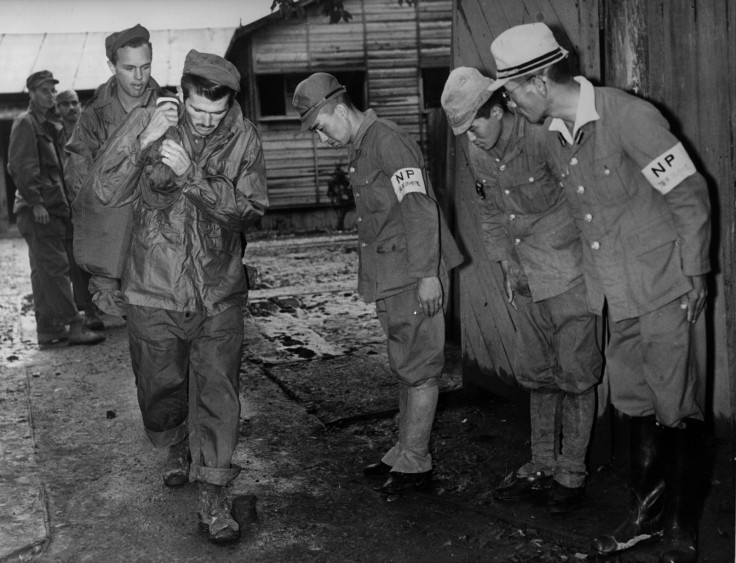VJ Day 70th anniversary: What happened on Victory over Japan Day?

Seventy years ago, the unconditional surrender of Japan to the Allies brought an end to six years of conflict. Although the Second World War officially ended on 2 September 1945, 15 August – when Japan announced it had accepted the Allied surrender terms – is known as VJ Day, or Victory over Japan Day.
On the afternoon of 14 August 1945, a nationwide broadcast aired by President Truman announced Emperor Hirohito had agreed to the Potsdam Declaration, which demanded the surrender of all Japanese forces. Since the European Axis powers had surrendered three months earlier, it meant the official end of the war – although the formal signing of the document would occur weeks later in September. It was announced that VJ Day would be celebrated on 15 August.
Events leading up to VJ Day
The Potsdam Declaration, issued by Allied leaders on 26 July 1945, called for Japan to surrender, threatening an ultimatum of "prompt and utter destruction" if the nation did not. Japan refused and on 6 August, an American B-29 bomber released an atomic bomb over the city of Hiroshima. It exploded with the energy of 15 kilotons of TNT, releasing a fireball that consumed the city.
Three days later, the US released a second, larger atomic bomb, Fat Man, over Nagasaki. Up to 200,000 lives were estimated to have been lost in the two attacks, the first and only times nuclear weapons had been used in war. The next day, the Japanese government issued a statement accepting the declaration.

Celebrations
As word spread, the celebrations began. In New York, a news ticker at One Times Square read: "*** OFFICIAL TRUMAN ANNOUNCES JAPANESE SURRENDER ***" - flanked with six asterisks to represent the branches of the US armed forces. People took to the street to sing, dance and express their relief that the long conflict was over. In one iconic photo taken by Alfred Eisenstaedt for Life magazine, a sailor kisses a nurse in Times Square.
British prime minister Clement Attlee later confirmed the news in a broadcast, saying the "last of our enemies is laid low". Buildings across London were lit, signifying an end to the blackouts and darkness the city had experienced during the Second World War. Thousands of people crowded on to the streets of every town and city in the UK to celebrate.
On VJ Day in London, thousands braved the rain to watch King George VI and Queen Elizabeth drive down the Mall in Westminster in an open carriage. The King later addressed the nation from Buckingham Palace: "Our hearts are full to overflowing, as are your own. Yet there is not one of us who has experienced this terrible war who does not realise that we shall feel its inevitable consequences long after we have all forgotten our rejoicings today."

Japanese reaction
The reaction in Japan was one of shock. On 15 and 16 August, some Japanese soldiers committed suicide. "What is clear for the wartime is that people thought that surrender was dishonourable, and that self-sacrifice for the greater good – ie, the nation, the Emperor and the other Japanese, was more desirable," said Dr Griseldis Kirsch, a lecturer in contemporary Japanese culture at the School of Oriental and African Studies in London.
News of the surrender would have taken time to reach all Japanese citizens, though. "The declaration of surrender read out by the Emperor is phrased in very formal Japanese and not necessarily easy to understand for everybody," Dr Kirsch explained. "Post-war myths usually construct a nation weeping in front of the radio receivers, but I don't think this is necessarily true."
Disbelief was widespread in part because Emperor Hirohito's radio broadcast was the first time some citizens had heard his voice. "Higher ranking officers and those who knew immediately committed suicide. But for the general audience I guess there was a lot of doubt about the truth of this message," Kirsch said.
On the 70<sup>th anniversary of VJ Day, commemorations will take place in remembrance of those who served and lost their lives during the Second World War.
© Copyright IBTimes 2025. All rights reserved.




















